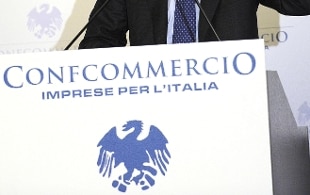Share
07 June 2020After liquidity, costs and a collapse in consumption, even the usury and illicit attempts by the underworld to take over companies are among the obstacles to the activity of trade and restaurant businesses during the Covid-19 emergency.An 11% of companies, according to a survey by Confcommercio in collaboration with Format Research, indicate in crime "a further, dangerous obstacle" to the conduct of their business. In particular, about 10% of entrepreneurs, in this period, "are exposed to usury" or to attempts to "misappropriate" the company.
And the percentage grows to almost 20% for those entrepreneurs who are very worried about the occurrence of these phenomena in their neighborhood or in the area of their business.
Two thirds of the companies still consider the law enforcement and judiciary actions to be effective and consider it essential to resort to the complaint, but still today almost 1 in 3 companies, in the face of these criminal phenomena, do not know what to do.
In fact, 67.4% of the companies interviewed believe that the action of the police and the judiciary is "very" or "quite" effective, to combat the action of crime against companies and 66% of the sample believes that the various forms of collaboration between central and local authorities, law enforcement agencies and the judiciary are "very" or "fairly" effective.
About 60% of the interviewees believe that the entrepreneur who is grappling with the criminal phenomena of usury and the attempt by the underworld to take over businesses must immediately report the crime of which he has fallen victim. 33% of the responses indicate an absence of strategies with respect to criminal pressure ('' I don't know what to do '') and only a small minority appears completely disheartened ('' nothing should be done because it is useless '').
However, the survey shows that a lack of liquidity and a drop in consumption represented the main obstacle to business activity during the emergency, affecting 60% of the commerce and restaurant businesses; almost 30%, on the other hand, between bureaucracy and the necessary sanitization, sanitation and other safety protocols, saw costs increase.

